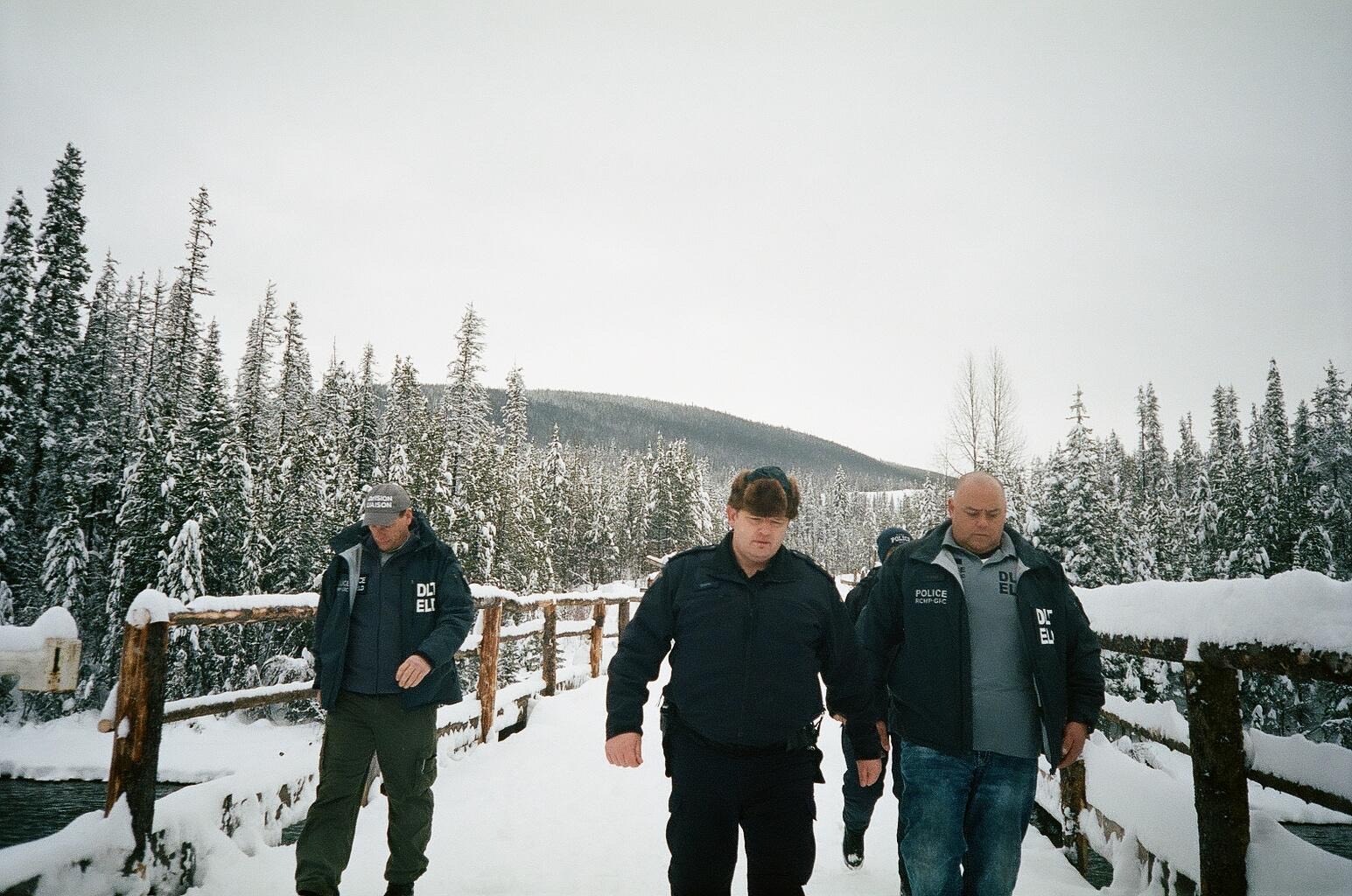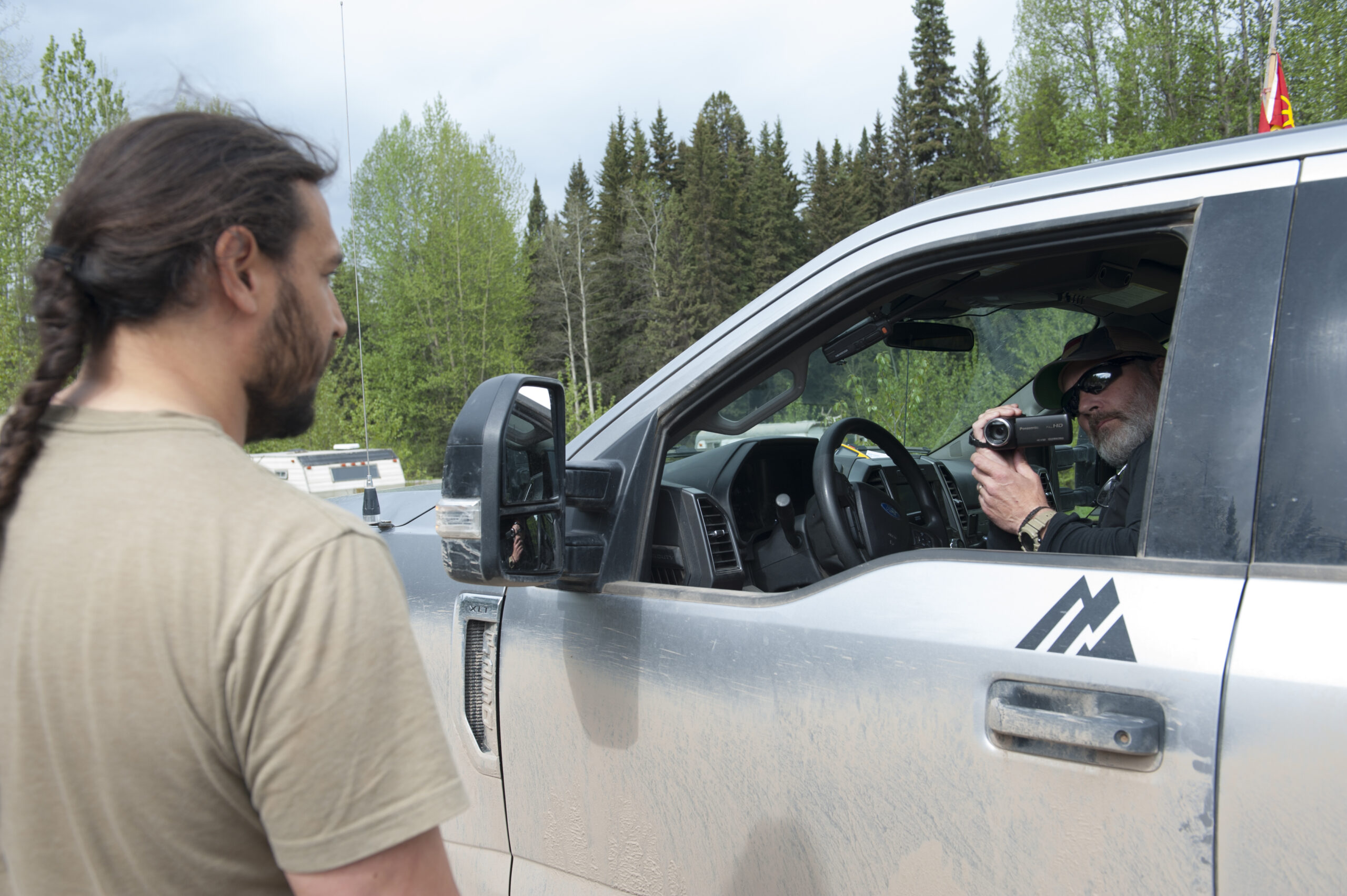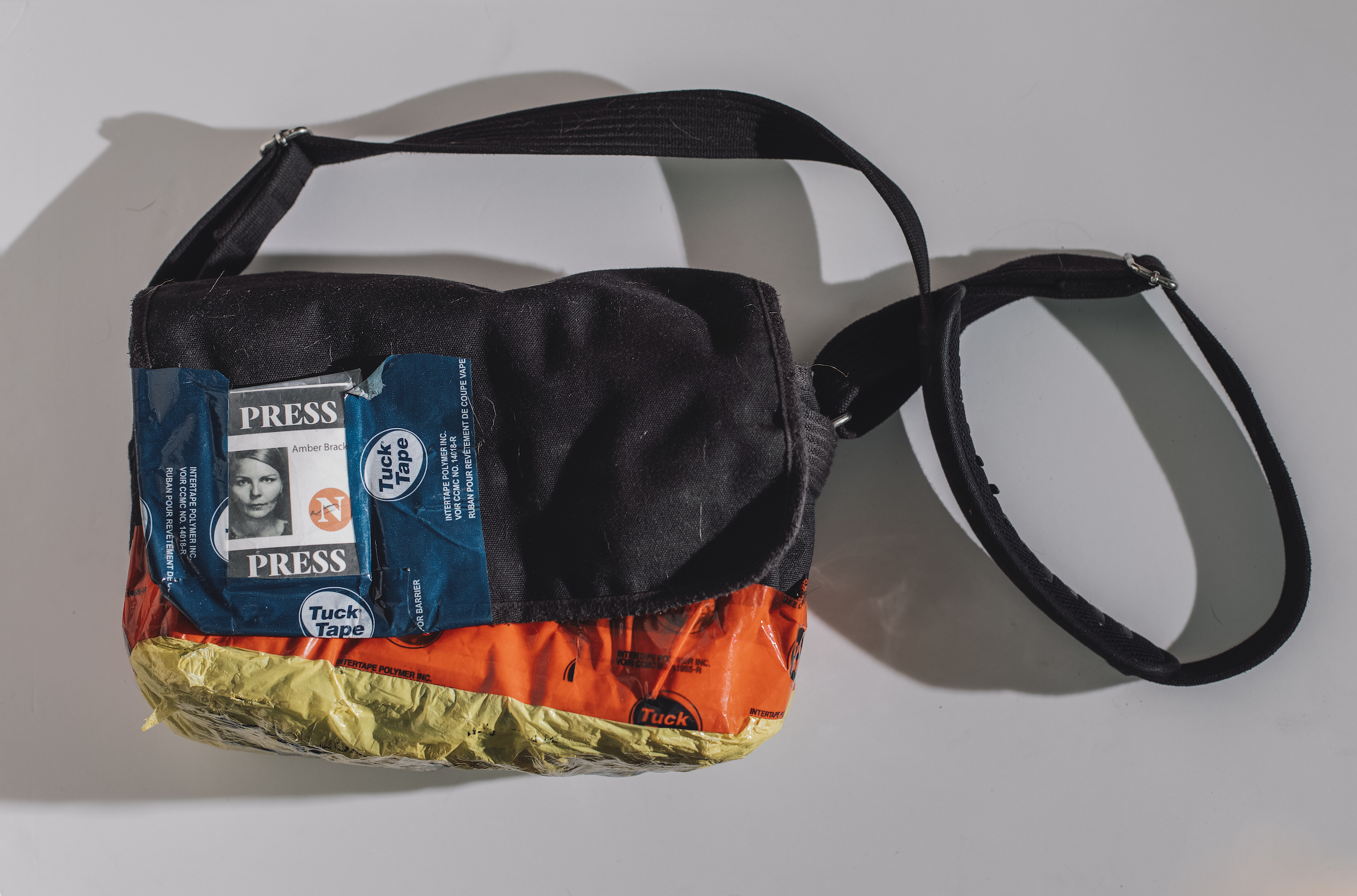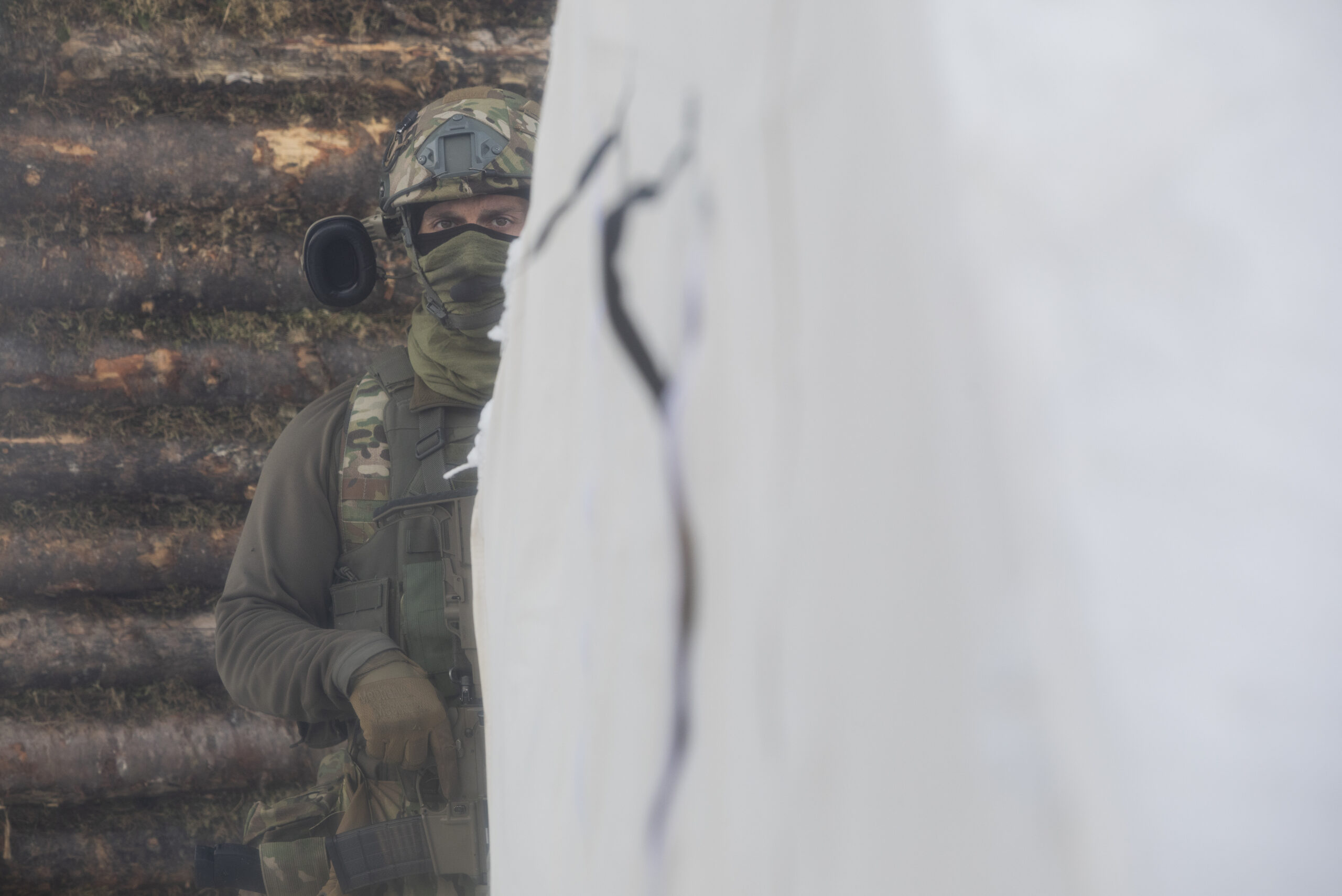
Ontario’s public service heads back to the office, meaning more traffic and emissions
For 15 years and counting, my commute from Mississauga to Toronto has been mired by...
“Beyond troubling” is how John Brewer, chief superintendent and gold commander of the RCMP’s controversial Community-Industry Response Group (C-IRG), described the conduct of some of his officers after reviewing audio recorded in the minutes following police arrests of land defenders and journalists in November.
Brewer was referring to racist statements made by officers who were involved in a November 2021 raid on Wet’suwet’en territory. He said he put all of his commanders on notice to signal there will be “zero tolerance” for racist conduct.
The police actions were led by the group Brewer commands, which is more commonly known as the C-IRG. The RCMP set up the unit in 2017 to police opposition to industrial projects such as the Trans Mountain pipeline expansion and the Coastal GasLink pipeline.
Public awareness of the special task force is increasing due to its role at several blockades and media scrutiny. As its notoriety grows, the C-IRG faces ongoing allegations of intimidation, harassment and excessive overreach.
During many of its operations, the unit has restricted media access through the use of exclusion zones and detained journalists with what is referred to as “catch-and-release” arrests, effectively removing them from the area and preventing them from documenting police activity.
This month, APTN News published an in-depth report about the group based on thousands of pages of documents obtained through access to information legislation, court records and more. The Narwhal has published a number of articles about the unit, including an investigation into internal emails that reveal how Mounties changed their story about arresting journalists, an exposé that included audio recordings of members making racist comments and an on-the-ground account of its unilateral approach to arresting anyone present during a logging protest in southeast B.C.
Critics say the unit should be abolished while supporters maintain it provides a necessary service. What exactly the group is and how it operates is complex and the facts aren’t easy to find — or they’re disputed.
One thing is clear: the C-IRG is in the middle of some of the biggest conflicts around environment and Indigenous Rights in Canadian history.
On Wet’suwet’en territory, it’s partly a clash between courts. A landmark 1997 Supreme Court of Canada decision ruled the nation never gave up its Rights and Title to the lands and resources. Yet, in 2019, the B.C. Supreme Court granted Coastal GasLink an injunction against anyone impeding construction of the pipeline — which had been given a green light by the province. That injunction is what mobilizes the C-IRG.
For seven months, The Narwhal has been requesting interviews with RCMP. This week, Brewer, who’s in charge of the unit, finally agreed to speak.
Brewer identifies as Indigenous and said policing runs in the family — he’s “third or fourth generation.” He rose through the ranks due to some “early successes in mitigating some protests.”
This conversation has been edited for length and clarity and annotated to fact-check some of Brewer’s statements.
We make best efforts to meet with all parties and every side involved in any issue that the Community-Industry Response Group is called in to work on. I know there’s been articles out there that talk about, we work for industry and all that stuff — that’s simply not true. We do work with industry, we work with protesters, we work with governments at all levels and we work with non-government agencies.
Injunctions are often sought by industry to seek relief from interruptions. We are directed by the courts to enforce those injunctions, so we don’t have an option to do it or not do it. So it does look like that, but I will tell you I’m on the road right now and I’m meeting with Indigenous leaders about protest issues that have been going on in their communities.
(Fact check: TC Energy, Coastal GasLink’s parent company, and LNG Canada wrote letters to senior RCMP officials last fall urging the Mounties to enforce the injunction. Jeffrey Monaghan, associate professor at Carleton’s Institute for Criminology and Criminal Justice, told The Narwhal at the time the courts can’t instruct RCMP to enforce an injunction. “Police do not have to enforce these injunctions — they have discretion,” he said. “The police are choosing to enforce these injunctions.”)

No. And I’ll tell you what I mean by that: our goal is to make sure everybody’s rights are respected under the law. For protesters, we make best efforts to make sure that the protests, if they’re going to happen, are lawful, peaceful and safe. With industry, they have a right to conduct their work, but if it ever changes and the industry tries to trample on people’s rights, we will step in and do the same thing to stop that. We are bound by the law, the charter.
Myself, I want to make sure everybody’s rights are respected under the law. And it’s not easy sometimes, I’ll tell you. I know it looks bad, but there’s always two sides and we are kind of caught in the middle being impartial. Impartial doesn’t mean we are neutral — we don’t sit back and watch, we have to deal with issues. My group has personally stepped in between industry when they want to take matters in their own hands to prevent any injuries or violence.
(Fact check: On June 22, Wet’suwet’en community members filed a lawsuit against RCMP, alleging “unlawful and overzealous” policing designed to “harass and intimidate” and discourage them from occupying the territory.)
We’re not everywhere all the time. The base relationship is they bring forward issues. It’s no different than when you’re going into the shopping mall and you talk to the security guard.
As for them being former police officers, well, if I was creating a private media company, I would probably hire former members of the media. I wouldn’t go hire a ditch digger. You know what I mean?
I am clear with my police officers: sometimes [security workers] are people they know but again I harp on that impartiality. During a protest, we had a situation very early in C-IRG where one of the members walked up and shook the hands of his former boss who was there and yakked it up with him. I was not happy with that. That person was brought aside and told, “Don’t ever do that again.” But it happens, people are human.
We’re under no misunderstanding that private security wants to bring us in. We understand that and we do work as a command team to [inform] members [that] security has a role to play but do not be, I’ll use the word, chummy. Be professional. When I hear they’re not, I’m quick to come down on those members and if they can’t be impartial and professional, then they’re not on the team anymore.

They go through training in managing protests, what to expect in protests, the laws, rules, regulations and policies around protest [and] civil injunction law, which most police officers aren’t very familiar with. They do de-escalation training and they do Indigenous awareness and background training. As well, they learn about the history of other protests. We do case studies on protests that have happened in the past and best practices, lessons learned.
All members of the RCMP have assessments as part of their intake into the RCMP. Whenever an RCMP member is exposed to a traumatic situation, we have critical instance stress debriefing. We’ve done that a few times for deployments. Every member of the RCMP at any time has access to any kind of psychological treatment or they can see a mental health professional.
I actually present that, as part of the training. I talk to people about how I do it — I make sure to look after myself physically and mentally. The final presentation they get on the course in their training is from me about mental and stress resiliency.
Before they come on to C-IRG, no, they don’t have to do assessment. They have to be fully fit for duty under RCMP policy, which is both physically and psychologically cleared.
When I heard that I was not happy, obviously. It was troubling, no, beyond troubling, that’s not the word I want to use. We did reach out and said, we would like two things: give us the unedited, full versions of those recordings and the people who were there, we encourage them to make a complaint under the public complaints act, and we’ll follow up.
(Fact check: The Narwhal adheres to the Canadian Association of Journalists ethics guidelines, which notes we do not “share unpublished information — such as notes and audio tapes of interviews, documents, emails, digital files, photos and video — with those outside of the media organizations for which we work.”)
I do not and will not tolerate that by any of my members. If I find out it happened and who did it, they won’t be in the Community-Industry Response Group anymore. We have about a 20 per cent turnover of people every year (and there’s well over 200 people in the unit.) For some, it’s not for them so they exit voluntarily. Others, we determine as a command group it’s not for them and they are asked to leave. And that’s for lots of reasons, it’s not for racist or bigoted or inappropriate comments, sometimes they just don’t have it.
But I will tell you, as an Indigenous person myself, I will not tolerate that. I heard the recordings, the parts that were put into the article. I had my whole team, all my commanders, sit down: Can you identify those voices? There’s absolute zero tolerance for that in this unit. You are a professional and if you can’t be, you’re out. Simple as that.
I take misconduct and inappropriate conduct by members of my organization very serious and I will do everything I can to hold them accountable and root them out.
Every commander was put on notice to be watchful and mindful of this and reminders were sent out to everybody on the team that you have to be aware of what you say, when you say it and it’s not tolerated.
At the time of the arrest of both Amber and Michael, obviously I was in command there. There was ample opportunity to come out and exit that structure they were in. It’s easy to say, “You knew they were there.” We didn’t know they were there until they were arrested.
Up to and including us entering, they could have [said] right away, “We’re media.” And that didn’t happen. It wasn’t until hands were laid on them. They were in there when people were defiant, refusing to come out. And I’m not saying that they couldn’t be part of that and do their job. All they had to say from within was, “Hey, I am Amber Bracken, I am with media. I am in here.” It just didn’t happen.
(Fact check: Bracken was reporting live from the location until RCMP cut off power and communications. The Narwhal also communicated directly with Mounties prior to the enforcement to inform them Bracken was at the location and she was openly displaying her identification as a member of the press.)

I’ll be quite honest with you, I will take Mr. Toledano aside: I know he works for groups and does work with the Gidimt’en checkpoint group and with a film company there. You can’t switch on and switch off when you are media. We’ve dealt with several of these, where we’ve got media people one day and the next day they’re sitting down blocking the road. We arrest them, because they’ve switched roles.
The crown and the company decided not to pursue the charges against the two — I’m fine with that. The arrest itself, I’m comfortable with.
I personally review the circumstances whenever we make an arrest of media or some high-profile person. What makes a society is that we have an open press that can report on anything. I’m not here to trample on that, despite what people say.
(Fact check: In a previous interview, Toledano told The Narwhal his work, which has been aired on major networks across the country and picked up by numerous publications, speaks for itself. The feature documentary he is currently working on, in collaboration with Wet’suwet’en community members, recently won an award from the Cannes Film Festival’s Docs in Progress.)
I will say for Amber, yeah, it was certainly more of a misunderstanding. The arrest, I’m comfortable with and I will always maintain that. But yeah, the background … How do I put this, Matt? You’re going to print this and it’s making me look dumb. I would say, Amber was up there doing her job. She just should have at least identified herself, not waited until we laid hands. You can appreciate my members don’t know who she is. They may know of her but even if they had a photo, which they did not, at the time they’re focused on threats.
In that case, when I reviewed it, I viewed their actions certainly in that dwelling as participating.
(Fact check: In audio recordings captured shortly after the arrest, RCMP officers seem to indicate their awareness of Bracken, noting, “The one Amber chick is fine, the media chick. She’s clean and normal.”)
When we get negative stories, when people accuse us of brutality, breaking people’s legs intentionally [or] strip searching, none of this happens. We’ve had allegations that we set police dogs on people — it’s just not true. That’s what I’m talking about. I’m not talking about, you know, a legitimate story. But it’s when you get this obviously over-the-top sensational reporting where it’s one-sided. That angers me because it’s so ridiculous.
When we’re called the “militarized” police, I hate that term. People who say that seem to forget that we’ve had a number of police officers outgunned and gunned down in this country, nevermind elsewhere. So yeah, guess what? Our job is inherently dangerous, with lots of risks. We mitigate those risks with tactics, different uniforms, police dogs, sure. Some of our members are trained and use carbines, long guns. But we’re not militarized whatsoever. That green uniform the emergency response team uses, it’s been adopted in most tactical units in policing because it blends in: night, day, urban, rural. It’s just a uniform, it’s not camouflage.
When I talked about [how] we need to counter the negative stories, that’s what I mean.

Every time an accusation is made, regardless of the basis to it, as a command team we look at it and cross reference with public complaints we receive. You can appreciate that protesters, especially when there’s an injunction and we’re arresting people and stopping their protest, are not happy with us and they’ll make allegations. Whenever we can, we will investigate. I’m surprised sometimes of the allegations that are printed, simply because on the face of it, they’re not accurate.
There’s a recent story printed calling C-IRG a secret organization — we’re not very secretive when our marked police cars have our name on it. If we are secretive, boy we really stink at it. We don’t spy on people. I don’t have a spymaster, that kind of stuff. I appreciate the sensationalism of it but it’s just not accurate.
As for the breach of policy taking name tags off, I made that decision. I cleared it with my higher command, my bosses, and I had to articulate why, I didn’t just do it. Our members were getting doxxed with their name. People were searching their personal information online. I got doxxed, because my son has the same name as myself. They went through his social media and got to me. We had a member where protesters found out where his church was and went to the church and confronted people. We’ve had wanted posters put up around the City of Victoria of police officers. I mean, come on, how is that reasonable? So I made that decision that I wasn’t going to make it easy.
First of all, I will say that not all hereditary leaders in Wet’suwet’en are opposed to this project. I would respectfully say that’s not accurate. Some certainly are and that’s their right. The elected chiefs and councils there [support the project] and there’s been elections since the project started so people have had a chance to speak. They’ve re-elected leaders or elected leaders that continue supporting the pipeline for the economic benefits agreements and whatnot. It’s not as easy as all the Indigenous people are for or against it.
(Fact check: While there are community members and elected officials who support the project, Wet’suwet’en Hereditary Chiefs, representing all five clans of the nation, issued Coastal GasLink an eviction order first on Jan. 4, 2020, and again in November, 2021.)
As to calling for the removal of the RCMP and then they’ll talk, I will tell you throughout the last number of years up there since 2019, we have scaled back our posture numerous times to where we almost have nobody. We cleared out of the community industrial safety office, we stopped patrolling regularly and what did we get? Each and every time, we got blockades.
If you want to call for removal of the RCMP, how about this: get everybody out of there, then talk to government. I agree with them on that point. That’s how this is going to be solved, through meaningful dialogue with industry and government. Unfortunately, until that happens, the police are there to keep the peace and enforce that injunction. If the protesters agreed to absolutely stand down, I would be happy. If we don’t have to be there, why would we be there? I can’t wait to be out of the territory when we don’t have to be there to enforce that injunction.
(Fact check: Wet’suwet’en community members and their allies are currently building a balhats, or feast hall, on the territory and there are numerous cabins, smokehouses, homes and other facilities close to pipeline worksites.)
Enbridge Gas will face Waterloo Region in a hearing before the Ontario Energy Board to renew an agreement that would allow the company to continue...
Continue reading
For 15 years and counting, my commute from Mississauga to Toronto has been mired by...

For our last weekly newsletter of the year, we wanted to share some highlights from...

The fossil fuel giant says its agreement to build pipelines without paying for the right...